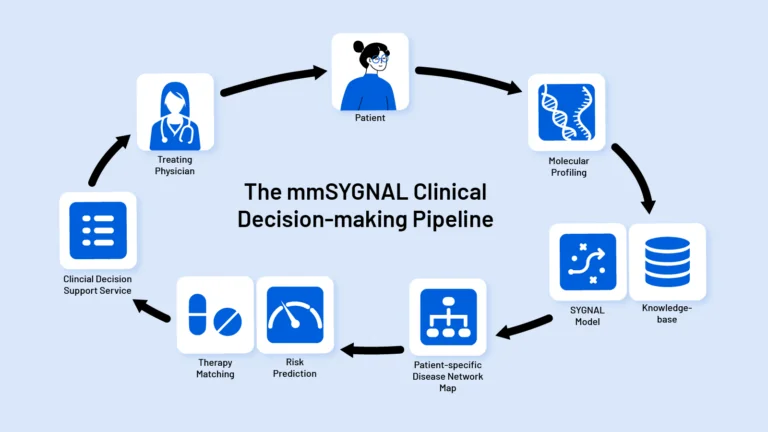
New Model Transforms Multiple Myeloma Risk Prediction
A team of researchers has developed a powerful new tool that could transform how doctors treat multiple myeloma, a complex and often unpredictable blood cancer.
Filter
Sort

A team of researchers has developed a powerful new tool that could transform how doctors treat multiple myeloma, a complex and often unpredictable blood cancer.

Sui Huang challenges the prevailing view of cancer as purely genetic in a new essay published in PLOS Biology. Huang and colleagues suggest non-genetic factors and disrupted gene regulatory networks may play crucial roles in cancer development.

ISB researchers have uncovered a stealth survival strategy that melanoma cells use to evade targeted therapy, offering a promising new approach to improving treatment outcomes.

ISB’s Gibbons Lab developed a breakthrough method that analyzes food-derived DNA in fecal metagenomes, allowing for data-driven diet tracking without the need for burdensome questionnaires.

Carole Ellison has supported ISB’s research and STEM programs for over a decade. She established the K. Carole Ellison Fellowship in Bioinformatics, funding groundbreaking research that has enabled young scientists to make critical discoveries.

Scientists at the Institute for Systems Biology (ISB) reveal how T cells “decide” their fate in fighting infections like COVID-19, paving the way for improved treatments for infections, cancer, and autoimmune diseases.